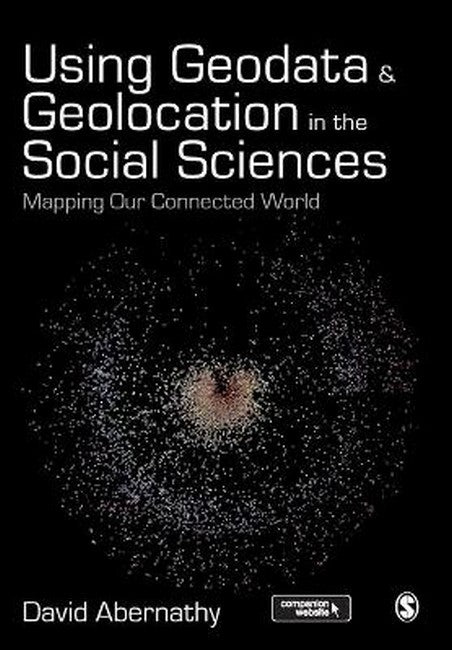Introduction: The Power of Where A Brief History of the Geoweb "Big Geodata": Managing Spatial Data in a Connected Age Citizen Cartographers: Neogeography, VGI and the Democratization of Data Production Challenges of the Geoweb: Data Accuracy, Privacy, and Surveillance Introduction to Geodata: Types of Geodata; [see p. 9] How do we Identify and Gather Location-Based Data? Capturing Absolute Location with the Global Positioning System Geocoding, Geotagging & Geoparsing Social Media Geodata: Capturing Location-Based Twitter Data Mapping the Emerging Internet of Things Visualizing Data in Geographic Information Systems with QGIS Working with Geodata in GRASS Working with Geodata in R Web Mapping Epilogue: Weaving the Geoweb
Request Academic Copy
Please copy the ISBN for submitting review copy form
Description
Having an understanding of geography is essential for scholars across all the disciplines in the Social Sciences following the data revolution, the rise of 'big data' and the increasing salience of utilising naturally occurring data as a way of augmenting our understanding of how we interact in the social world. In response to this, Abernathy provides a truly accessible and interdisciplinary introduction to geodata and geolocation covering both the conceptual and the practical. It is a must read for students or researchers looking to make the most of the spatial elements of their data. -- Luke Sloan This book provide an insightful perspective on the geoweb, exploring a diverse range of applied geodata examples. Applications tackle interesting and current data issues, such as crowdsourced geographic data and harvesting geolocated social media information for assisting geospatial decision-making. This allows for relatively technical concepts to be highly accessible to the reader. The work-through examples link effectively to geostatistical analysis of data providing an excellent basis for communicating fundamental notions of the geoweb to students. This book provides a great primer for better understanding geolocated information. -- Eloise Biggs Using Geodata and Geolocation in the Social Sciences" is a much-needed text book for anyone interested in understanding what the geoweb is, how it works and how it is shaping our interactions with places, people and objects. This very well-written book provides a clear overview of the historical, technological and intellectual foundations of the geoweb. It fills a gap in academic literature by combining the practical aspects of collecting, processing and visualizing a range of geodata with a more critical perspective on the economic, social and political implications the geoweb is having on our daily lives. -- Sebastien Caquard David Abernathy recognizes that, regardless of our participation in the geoweb, we increasingly live our lives within it. This important text begins from such a premise, that in order to intervene and make change in the geoweb, we must understand its situation - its context - while also experimenting with the techniques and technologies that make its proliferation possible. Organized into two parts, this book charts our cyborgian world, giving readers access to the fantastic histories of our geoweb present and the concepts necessary to build expertise in their use. Technologies and concepts in the geospatial sciences have undergone rapid change. Abernathy captures a moment in this dynamism, and provides readers with key handles into this phenomenon from the perspective of the social sciences. Far from simply a technical handbook on the geoweb, this book enables a more critical understanding of the issues associated with the proliferation of the geoweb in everyday life, for some, as well as the implications of the uneven access to such surveillant innovations. -- Matthew W. Wilson

